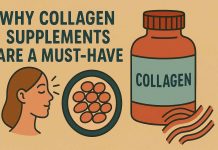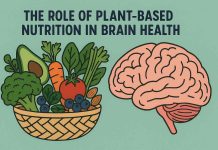There are many myths surrounding plant-based diets especially when it comes to protein. You have undoubtedly heard things like, “You can’t get enough protein from plants,” or “Plant proteins aren’t complete.”
Well, they are true but there is much more to the story. So, it’s time to separate fact from fiction. Let us explore the truth about a plant-based diet and clear up some of the most common misconceptions.
Myth 1 – You Can’t Get Enough Protein from Plants
Many people believe that without meat, it’s tough to get enough protein. This is one of the most popular carnivore diet myths, but the reality is that there are plenty of plant-based sources of protein that can meet your daily needs.
For example, you can take lentils, quinoa, tofu, chickpeas, and beans like veggies for protein intake
You might need to eat a bit more to match the protein levels found in meat, but it’s easily doable. Most plant-based diet physicians agree that with a balanced diet of whole foods, protein deficiency is rare.
In fact, it would not be wrong to say that the average person often consumes more protein than they need, so don’t stress about it.
Myth 2 – Plant-Based Proteins Aren’t Complete
You might have heard that plant proteins are incomplete because they don’t contain all essential amino acids. This idea, which dates back decades, is outdated.
According to plant-based doctors, you don’t need to eat all the essential amino acids in one meal. Yes – you have heard it right.
This is because your body can combine the amino acids from different foods throughout the day to create complete proteins.
So, if you eat a variety of grains, legumes, seeds, and nuts then all of these will give your body everything it needs. Now, it’s time to relax—there’s no need to carefully pair foods like beans and rice in one meal.
Myth 3 – Plant-Based Diets Lead to Iron Deficiency
Another common myth is that plant-based eaters are more prone to iron deficiency. While plant-based sources of iron (non-heme iron) aren’t absorbed as easily as animal-based sources.
You might be surprised to know that you can still get enough iron from foods like spinach, lentils, quinoa, and seeds. Isn’t it good?
Therefore, the main thing that comes here is to pair iron-rich foods with vitamin C. Doing so helps you enhance your iron absorption from your diet.
If you are on this purpose then it is highly recommended for you to eat foods like bell peppers, citrus fruits, or broccoli along with iron-rich plants to absorb the iron effectively.
What do you think about this simple trick that dispels the myth that a plant-based diet can’t provide enough iron?
Myth 4 – Vegan Means Healthy
Here’s a surprising one—not everything vegan is healthy. Just because something is labeled plant-based doesn’t mean it’s automatically good for you.
You need to understand that there are plenty of vegan junk foods, like chips, fries, and sugary snacks which are highly processed and loaded with unhealthy fats and sugars.
The truth about a plant-based diet is that you should focus on whole, unprocessed foods for good health. For this purpose, it is necessary to add foods like whole grains, fresh vegetables, fruits, and legumes for real benefits.
Myth 5 – Plant-Based Diets Are Expensive and Complicated
It’s a common belief that a plant-based diet is costly or hard to follow. However, many staple plant-based foods like beans, rice, oats, and seasonal vegetables, are actually more affordable than meat and dairy. Plus, they last longer and are easy to prepare.
Plant-based doctors often recommend to start eating simple meals. This way, you should replace meat with lentils in your soup or swap dairy milk for almond milk in your cereal.
Myth 6 — You Need Dairy For Strong Bones
A common misconception is that dairy is essential for strong bones. While we all know that dairy is a good source of calcium and you can easily get enough calcium from plant-based sources like kale, tofu, bok choy, almonds, and fortified plant milk.
Plant-based doctors often recommend leafy greens and fortified foods as calcium-rich alternatives. You might be glad to know especially if you are a vegan that all of these plant-based options not only provide calcium but also offer additional nutrients.
So, it would not be wrong to say that plant-based supplement diets can also play a significant role in your overall bone health.
Myth 7 – Soy Causes Cancer
One persistent myth is that the use of soy increases your cancer risk. However, scientific studies have shown that soy is safe and may even offer protective benefits against certain cancers.
Less people know that soy products like tofu, tempeh, and edamame are considered as best sources of plant-based protein. Moreover, many healthcare experts have also claimed that soy sources are also linked to improved heart health and lower cholesterol.
Due to all these facts, plant-based diet physicians and nutritionists often recommend soy sources in your diet. Just because of their versatility and healthy protein source.
The Truth About Plant-Based Diets
So, what do you think? It’s clear that many of the myths surrounding plant-based diets are just that—myths. Therefore, it would not be wrong to say if you follow a well-planned plant-based diet then it can meet all your dietary needs.
The truth about plant-based diets is that they are nutritious, affordable, and sustainable as they have protein-packed foods like lentils and quinoa to calcium-rich leafy greens. It is all up to you what type of balanced diet you take and see sudden changes in your body.













